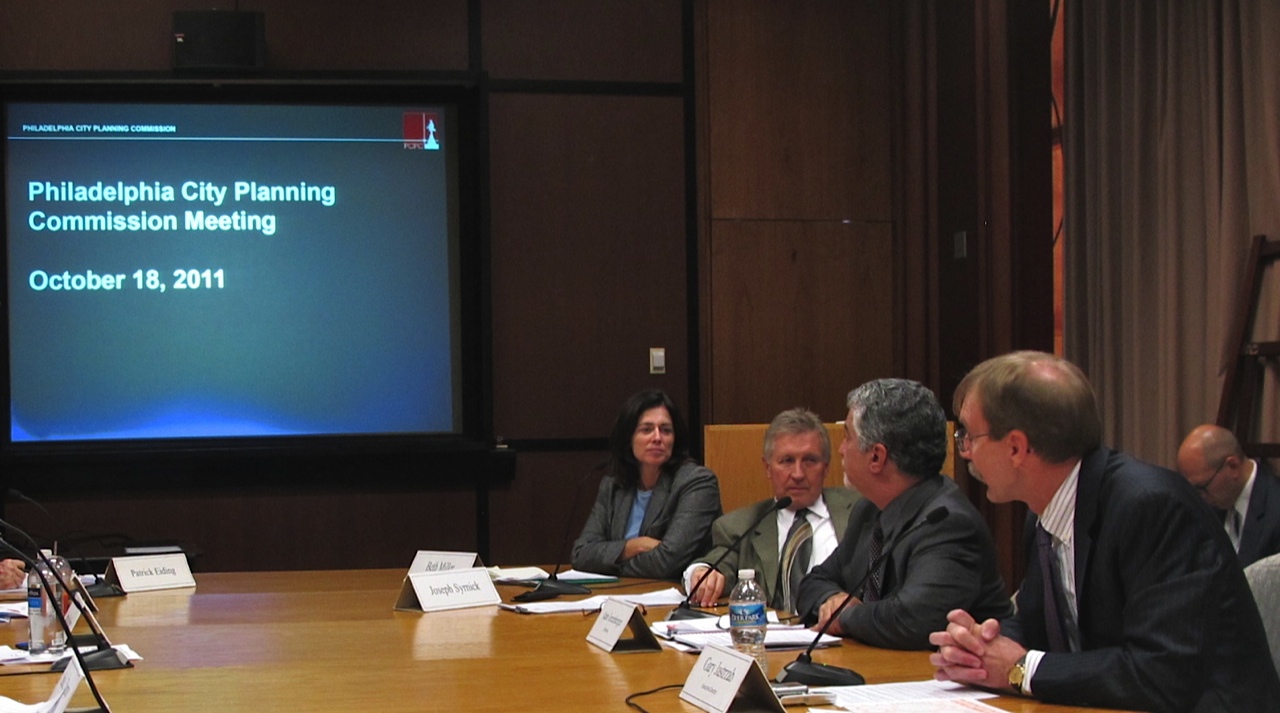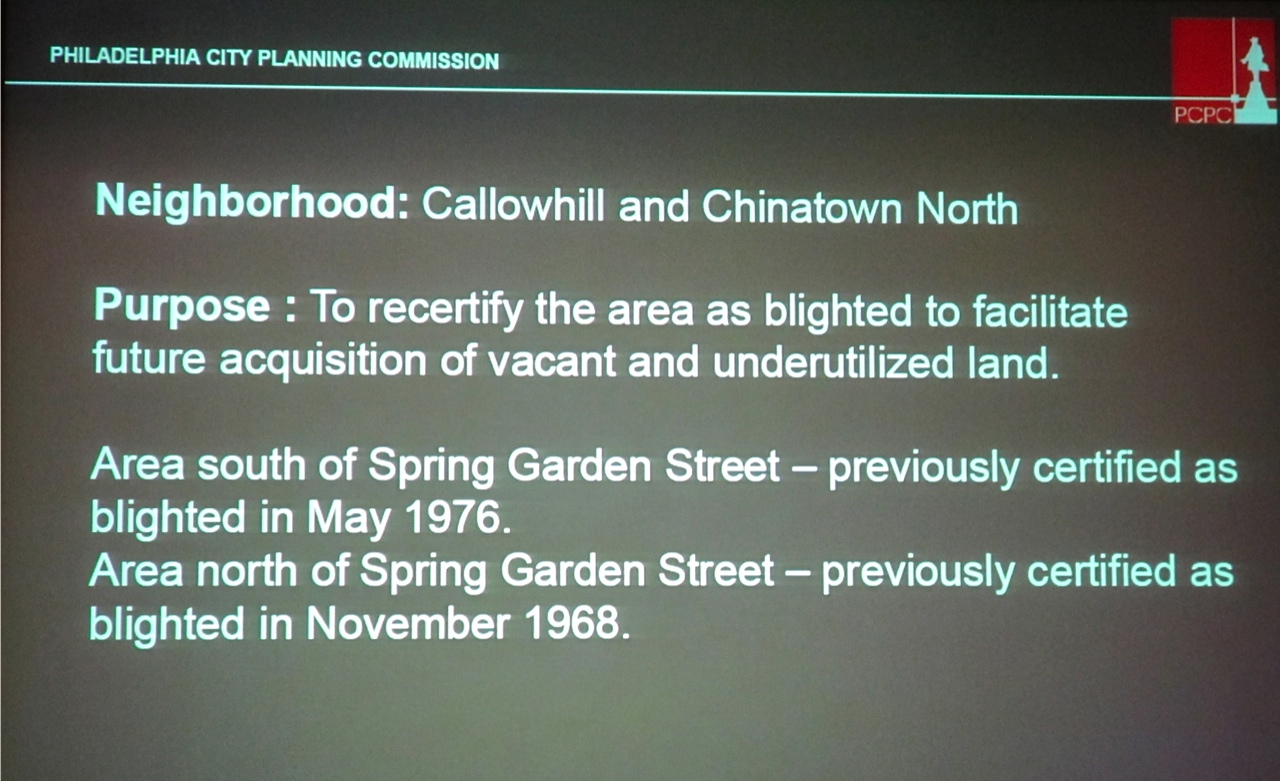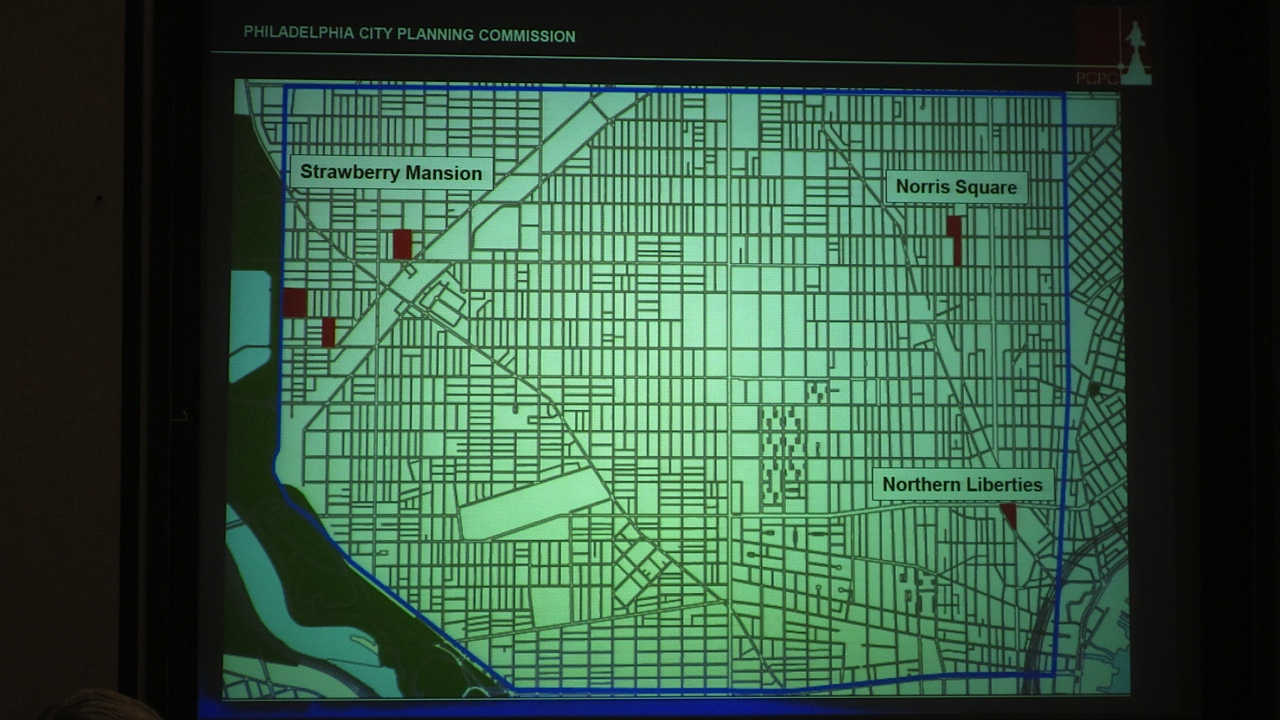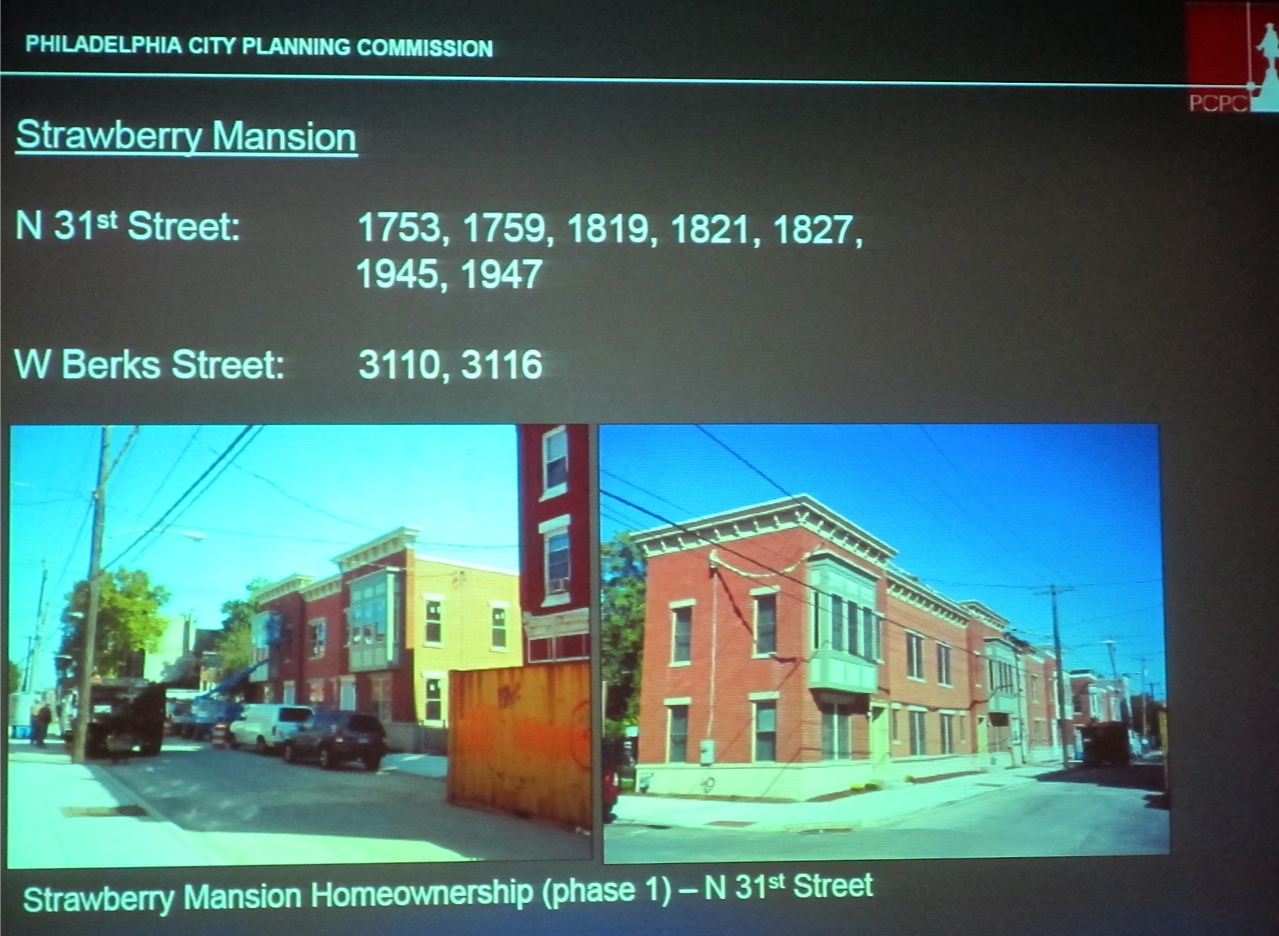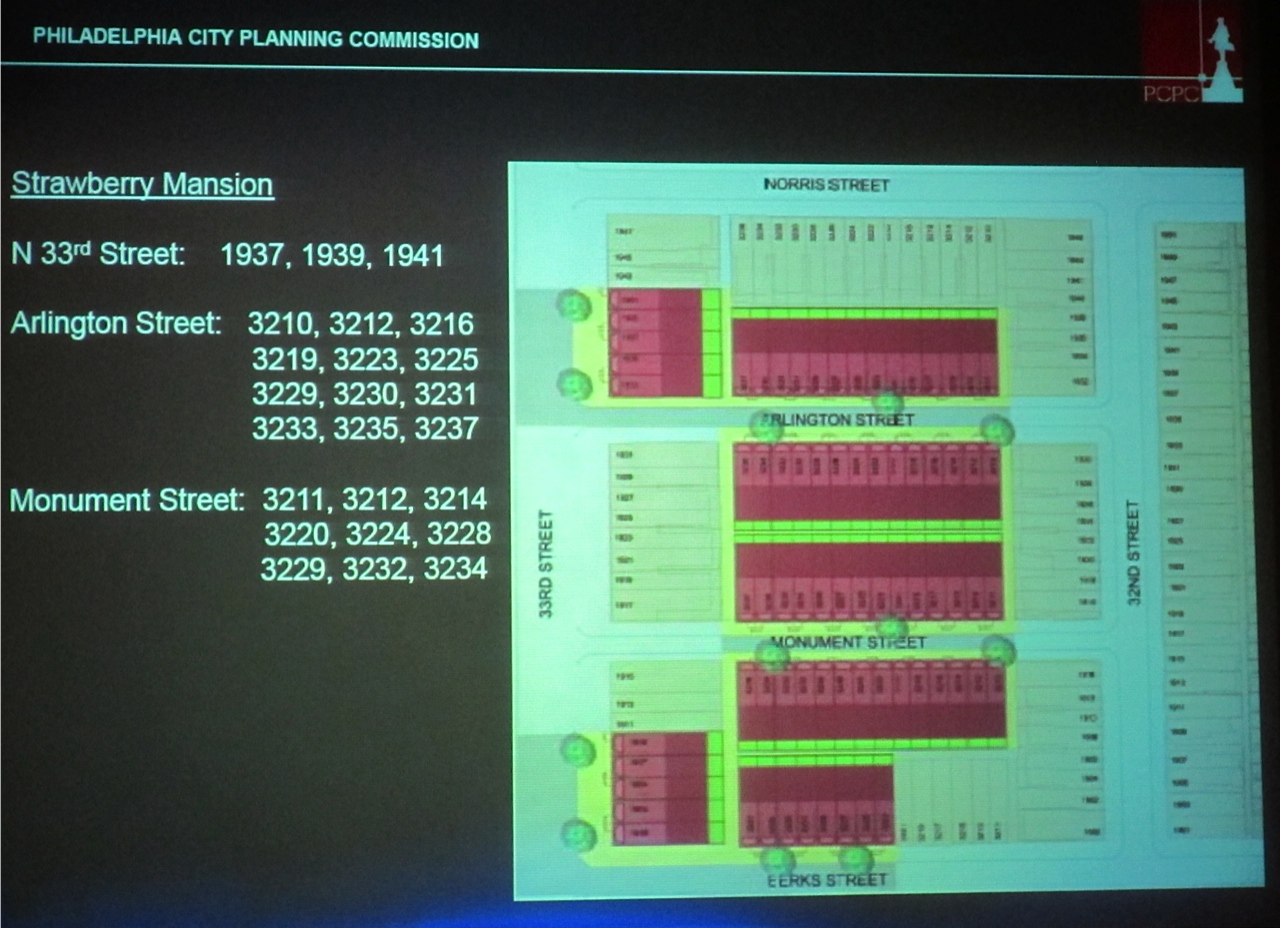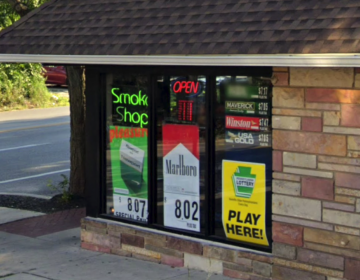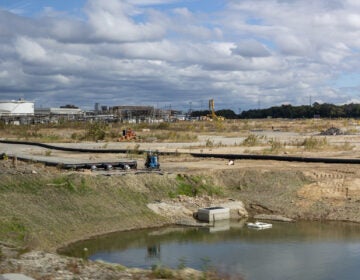PCPC: Saving the archives, Philadelphia 2035 update, Callowhill isues and more
The Philadelphia City Planning Commission is bringing back two 30-plus years-of-service PCPC veterans to help organize and save a treasure trove of commission archival and library material that is at risk and needs to be recorded and preserved.
One of the most interesting reports discovered so far was an offer by Philadelphia in 1946 to give the United Nations a Philly home for its headquarters – the two sites were the Belmont Plateau and pretty much the whole far end of Roxborough. Oh, the U.N. declined.
The Philadelphia 2035 project — the first comprehensive plan for the city since the ’60s – is well underway. PCPC staffer Richard Redding explained the current district planning process.
The project itself is twofold: the citywide comprehensive plan, which reaches 25 years into the city’s future, and 18 individual district plans. The public meetings being held are helping the PCPC gather input from residents on topics ranging from housing and pedestrian walkability, to cultural institutions and the role they play in the neighborhood.
Philadelphia2035 is one component of a broader initiative known as the “Integrated Planning and Zoning Process.” The process is designed to align Philadelphia’s zoning code changes with comprehensive and strategic planning, all of which is informed by a formalized public education and outreach organization, the Citizens Planning Institute.
As the citywide plan of Philadelphia2035 is completed, the City Planning Commission is geared up to prepare 18 strategic district plans over the course of the next four years. Each district plan will produce, among many other outputs, a proposed land use plan for the district. That land-use plan will serve as the basis for zoning map revisions, an important activity of the Zoning Code reform work.
Philadelphia2035: The Comprehensive Plan is managed by the Philadelphia City Planning Commission. But dozens of other organizations and individuals informed the content of the plan and will serve to implement it over 25 years.
During each district plan, a Steering Committee will help guide the plan, facilitate information flow and review outreach efforts. Chaired by PCPC’s Project Manager, a Steering Committee is comprised of leaders of neighborhood groups, business groups, and institutions such as colleges or hospitals. Steering Committees will meet on a monthly basis during a district plan.
Three public meetings will also take place during each district plan. Public meetings are designed to be available to all citizens in a district. Advertised through community organizations, flyers, direct mailings and internet postings, the public meetings will update residents on the progress of the plan and seek public input. Check out ongoing district planning in Lower South and West Park.
The Callowhill Industrial District
Blight Recertification for the Callowhill Industrial District, generally bounded by North Front, North Broad, I-676/Vine, and Spring Garden Streets, with an extension north to Fairmount Avenue between North 8th and 10th Streets, and south to Race Street between 11th and Broad Streets was presented by Laura Spina. Recommendation, with scary blight language, was approved.
The Callowhill Industrial District contains a wide mix of light industrial and commercial uses. Spring Garden Street is a major east-west arterial and a logical seam between the Callowhill Industrial District and the neighborhoods of Northern Liberties and East Poplar to the area’s immediate north.
The criteria for blight certification certain apply to Callowhill: Unsafe, unsanitary, overcrowded and inadequate conditions; inadequate planning; excessive land coverage; lack of proper light, air and open space; faulty street and lot layout; effective design and arrangement of buildings; economically and socially undesirable land uses.
Model Cities
PCPC approved the Model Cities Urban Renewal Plan Amendment which authorized the acquisition of 46 properties for residential redevelopment in Strawberry Mansion, Norris Square and Northern Liberties. The presentation was made by PCPC staffer David Fecteau.
Streets bills
APPROVED: Streets Bill No. 110611: Authorizing the striking of Delaware Avenue from Pennypack Street to a point approximately 5,500 feet to the southwest, through City of Philadelphia property (Introduced by Councilmember Krajewski on September 15, 2011; Presented by Sarah Chiu).
APPROVED: Streets Bill No. 110614: Authorizing the striking of Shedwick Street from Reed to Wharton Streets, and placing a utility right-of-way in the stricken Shedwick Street (Introduced by Councilmember Tasco for Council President Verna on September 15, 2011; Presented by Sarah Chiu).
APPROVED: Streets Bill No. 110663: Striking Slocum Street from northeast of Chew Avenue to its terminus (Introduced by Councilmember Miller on October 6, 2011; Presented by Sarah Chiu).
NOT APPROVED: Streets Bill No. 110671: Striking Bodine Street from Spring Garden to Green Street (Introduced by Councilmember DiCicco on October 6, 2011; Presented by Sarah Chiu).
APPROVED: Property Bill No. 110632: Authorizing the Philadelphia Authority for Industrial Development (PAID) to purchase a 2 acre parcel of land at 9470 Ashton Road for site consolidation (Introduced by Councilmember Krajewski on September 22, 2011; Presented by Martine Decamp).
WHYY is your source for fact-based, in-depth journalism and information. As a nonprofit organization, we rely on financial support from readers like you. Please give today.



